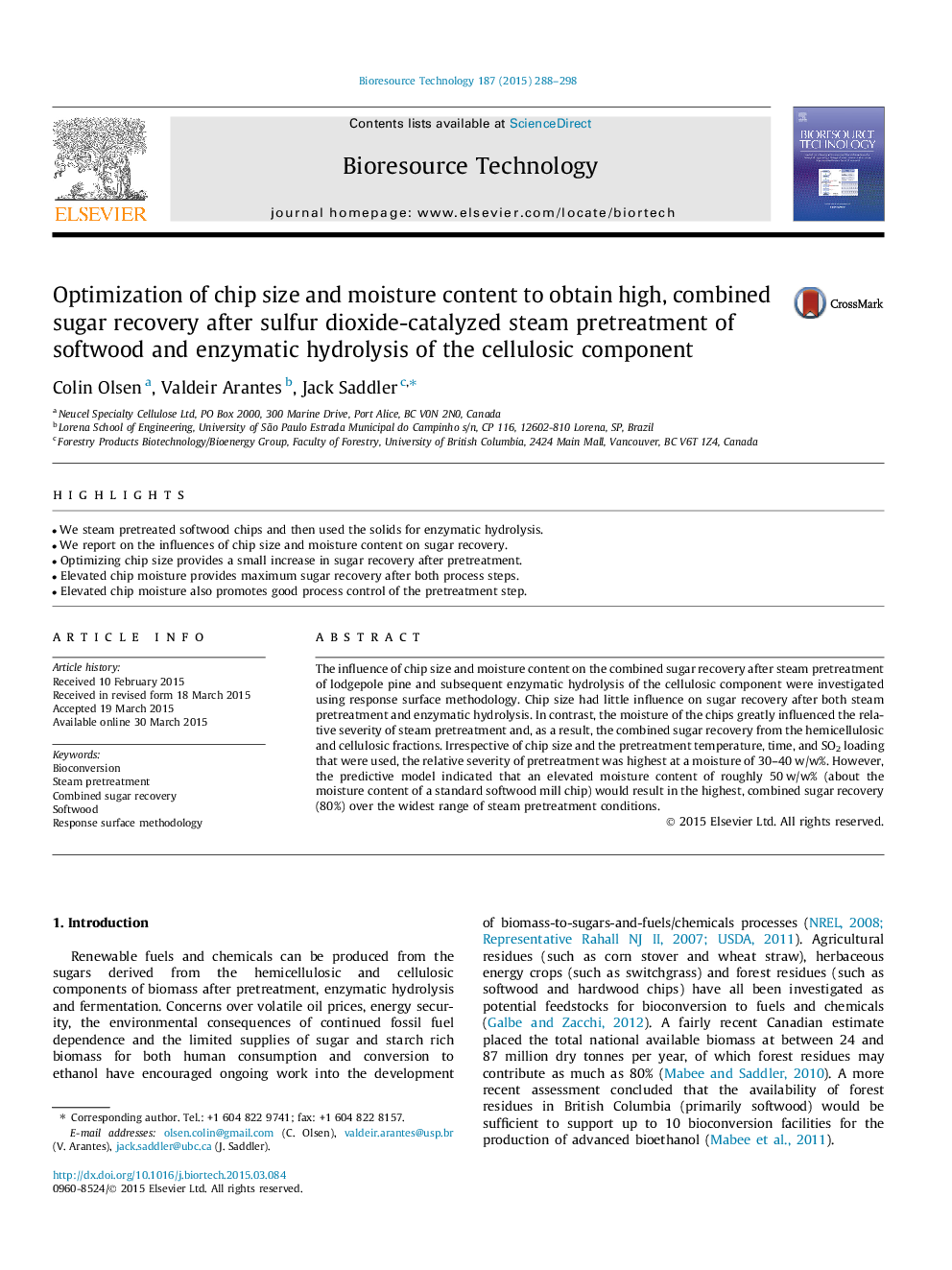| Article ID | Journal | Published Year | Pages | File Type |
|---|---|---|---|---|
| 7075247 | Bioresource Technology | 2015 | 11 Pages |
Abstract
The influence of chip size and moisture content on the combined sugar recovery after steam pretreatment of lodgepole pine and subsequent enzymatic hydrolysis of the cellulosic component were investigated using response surface methodology. Chip size had little influence on sugar recovery after both steam pretreatment and enzymatic hydrolysis. In contrast, the moisture of the chips greatly influenced the relative severity of steam pretreatment and, as a result, the combined sugar recovery from the hemicellulosic and cellulosic fractions. Irrespective of chip size and the pretreatment temperature, time, and SO2 loading that were used, the relative severity of pretreatment was highest at a moisture of 30-40Â w/w%. However, the predictive model indicated that an elevated moisture content of roughly 50Â w/w% (about the moisture content of a standard softwood mill chip) would result in the highest, combined sugar recovery (80%) over the widest range of steam pretreatment conditions.
Related Topics
Physical Sciences and Engineering
Chemical Engineering
Process Chemistry and Technology
Authors
Colin Olsen, Valdeir Arantes, Jack Saddler,
